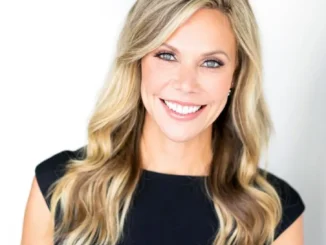
More people seem to be aware of the potential utility that a reverse mortgage could provide for older homeowners, including as a tool to age in place and to provide greater cash flow in retirement. This is according to survey results published this week by WSFS Mortgage, a division of WSFS Bank.
“[M]ost homeowners with knowledge of reverse mortgages agree they can allow you to stay in your home longer (79%) and provide needed cash flow (76%) in retirement,” the results explained. “Sixty-two percent of respondents with knowledge of reverse mortgages agreed they can provide more financial freedom in retirement, while 61% said they can help cover expenses like long-term care.”
The survey was conducted nationally by research company Opinium in late February, and it consisted of 750 homeowners age 60 or older. It measured “respondents’ financial stability, knowledge and attitudes toward reverse mortgages,” the results stated.
As a product primarily offered by the Federal Housing Administration (FHA) that has undergone a series of major changes over the past 15 years in particular, robust investments in borrower education could indicate that there is more awareness of the different uses that a reverse mortgage can offer, according to Jeffrey Ruben, president of WSFS Mortgage.
“Reverse mortgages have undergone significant changes the past decade, but the biggest change is how many financial advisors are now incorporating housing wealth into their retirement income planning,” Ruben said in a news release. “A reverse mortgage could be a good option for those seeking to strengthen their cash flow in retirement.”
Nearly 30% of respondents indicated openness to incorporating a reverse mortgage into a larger retirement plan, the results said.
“For many Americans, their house is their largest asset, but it can also be your largest liability in the sense of cash outflow each month,” Jamie Hopkins, CEO of Bryn Mawr Capital Management, said in the release. “Your home comes with a lot of costs, like mortgage payments, utilities, property taxes, and more, which can really impact retirement planning. Housing, wealth and retirement is more about cash flow, and can you maintain that cash flow and your property while living the life you want in retirement.”
Thirty-four percent of respondents said “they would probably (21%) or definitely consider (13%) a reverse mortgage if it was relevant to their financial situation,” the results showed.
During the survey and after learning more about potential use cases of the product, 16% of respondents said they were “very knowledgeable about reverse mortgages,” 26% said they “were moderately knowledgeable” and 22% were “slightly knowledgeable,” and said they might be more likely to engage with the product. This compared to 17% who said they “were not knowledgeable about reverse mortgages,” the results explained.
Borrower education and spreading awareness of the product category has been a key priority for most major reverse mortgage industry players for years.
“We know that we’ve got to do a better job of educating our customers, and that education continues to be a barrier, but that’s not a problem that’s solved overnight,” Chris Moschner, chief marketing officer of Finance of America Companies said in a late 2023 interview.
“That’s a problem that’s solved with content, with influencers, PR, marketing, advertising and messaging. There are multiple ways that’s done, and it just takes time, money and commitment.”



